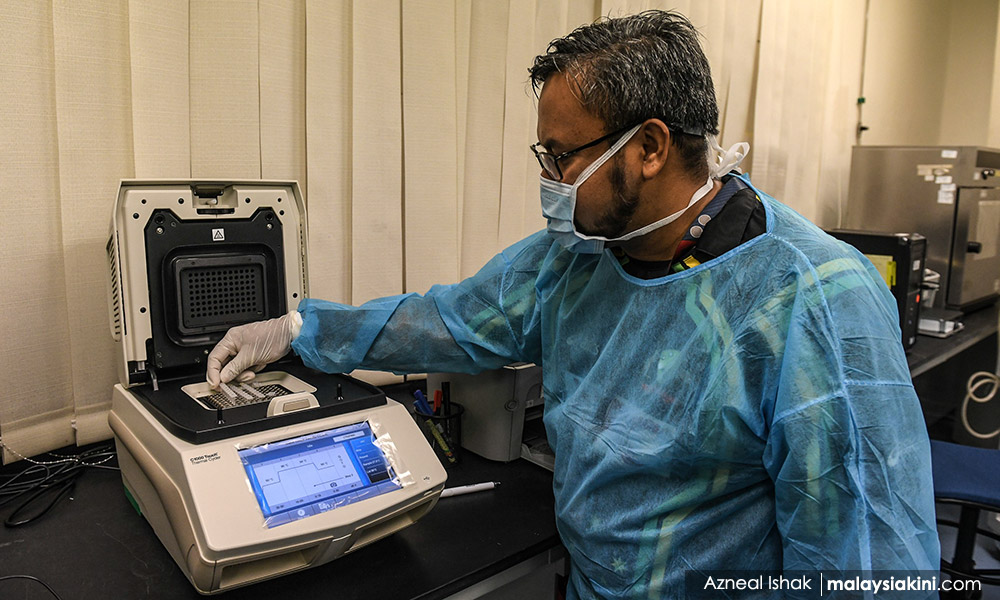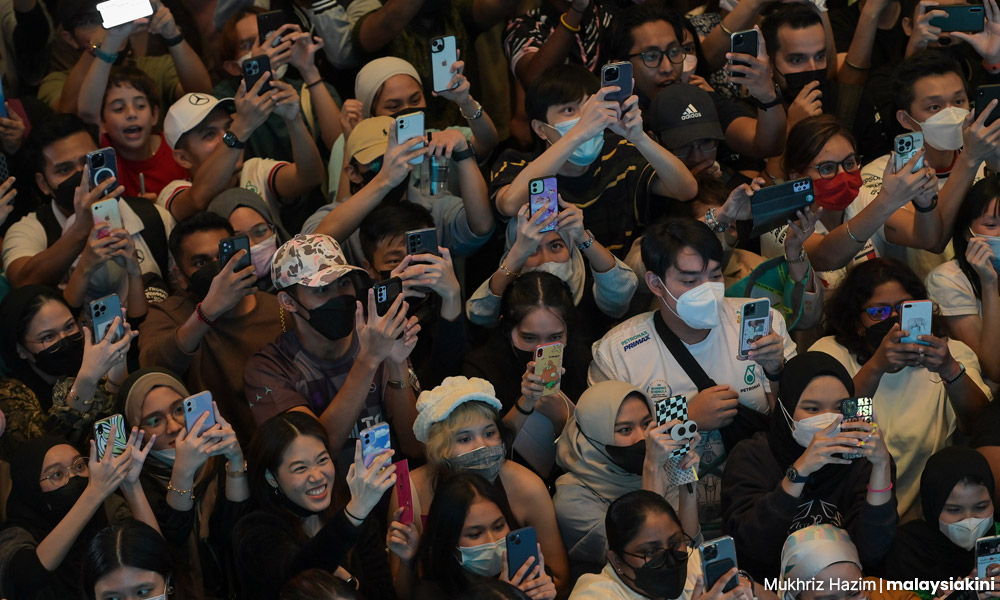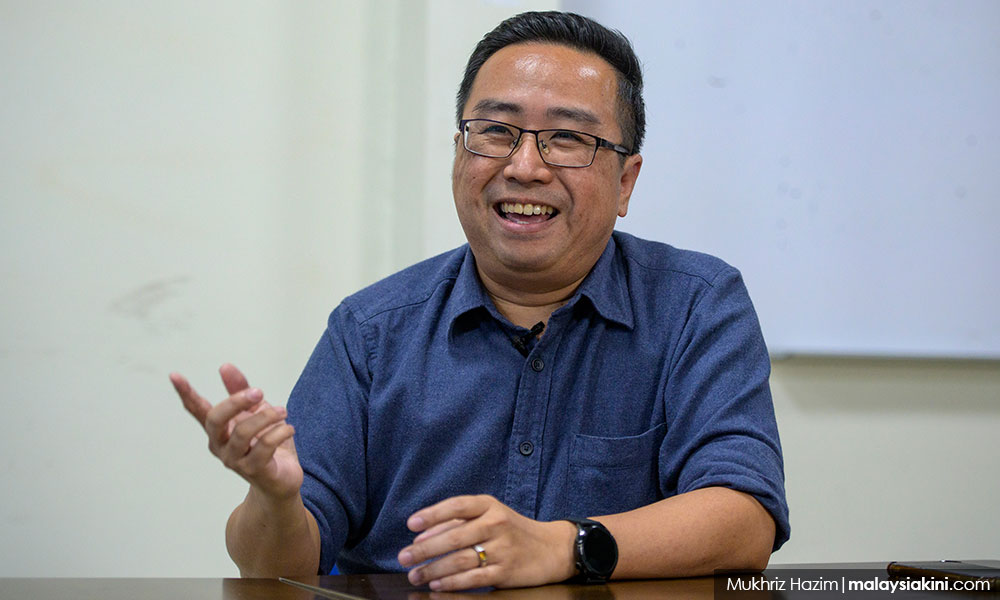INTERVIEW | Seated at a coffee bar in Bangsar, it is not immediately apparent to other clientele that the soft-spoken bespectacled man opposite this writer is helming a key ministry in Prime Minister Anwar Ibrahim’s administration.
Chang Lih Kang was elected to his second term as Tanjung Malim MP in GE15 and was then appointed the science, technology and innovation minister.
The 42-year-old is among the youngest cabinet ministers in the new government, alongside PKR colleagues Fahmi Fadzil, Nik Nazmi Nik Ahmad, and Ewon Benedick.
A civil engineering graduate from Universiti Putra Malaysia, Chang feels strongly that science and technology cannot be the purview of a select few, but needs to reach mainstream society with a positive impact.
Reversing brain drain
Chang said one key priority is the adoption of science and technology in the industry, especially small and medium enterprises (SMEs).
“Adopting more technology will really help us build the country in terms of science and technology capacity, and also to retain talent in Malaysia.
"Done well, we should also be able to attract talents from other countries, instead of losing them," he told Malaysiakini.
The minister also pointed out the need to train more scientists.
“Maybe it sounds contradictory as we are losing a lot of people already but if you train more and more, then they will compete among themselves.
“When we have more quality talents, I think we can attract good companies from outside to invest in Malaysia and that will help us retain our talents.
“On the one hand, we need to make sure our enterprises adopt more technology and on the other, we also need to train more quality talents to attract big investors,” he said.

More companies and corporations should also be involved in adopting and innovating new technologies, Chang added.
"Then we can offer good quality jobs in Malaysia. I believe that nobody wants to go to another country if they can find good jobs at home. Pay is only one factor, there are many others and we need to develop into a progressive society.”
Science must impact the masses
The PKR lawmaker believes there is no point talking about science and technology if people don't feel their lives improving with technology.
"I would also like to see more technology being adopted in our daily life… it might not be cutting-edge technology, but at least in daily life, it may be useful.
“Otherwise, we only have science and technology at a very high level for a few people only, but we can not translate it into most people's lives," he said.

Chang added that one of the key changes needed is to create a friendly environment for tech companies to do business in Malaysia.
“This is because there are some problems that need to be resolved before we can really be consistent. A lot of areas need to be enhanced. For instance, funding, because we don't have enough research and development grants. And for most of our grants, the research remains theoretical, they are not applied.
“I would like to see us using science and technology to help our country to solve some pressing problems, such as food security or climate change, which are major areas of concern,” he said.
Chang does dream of a scenario in which Malaysian scientists lead the world and even contribute to pandemic vaccines, important climate change technology and robotics factories.
“A complete and good ecosystem is very important. Every now and then, we hear of some really extraordinary or outstanding Malaysian scientists helping in some super research overseas. I don't blame them because our ecosystem is not good enough.
“In funding, we are way behind compared to other countries. It is also about policies. If we want to be successful, we need to have good policies to help our science community,” he said.
“Say if we have a lousy immigration policy, our foreign talent cannot get visas or their family may find it very hard to get visas, then that would be very problematic. So people might shift base to other countries,” he added.
As for vaccine development, Chang said that even prior to Covid-19, the possibility did loom with SARS and the bird flu.

“Pandemics happen all the time so I think it’s very important for us to develop our own capacity in terms of human vaccine development.
“As of now, we don't have the capacity to produce human vaccines, we only have the capacity to produce animal vaccines.
“That is why we have our own vaccine development programme in cooperation with the private sector," he explained.
No need for big projects
In the past, there were some famous science projects such as the angkasawan (space travel) programme and a scientific trip to Antarctica, but Chang felt such grand endeavours were not practical.
“Of course, that can attract people's eyeballs but I don't see it in the near future because our country's financial condition is not so good. I'm looking at a smaller scale.
“One is to have our own satellite and I also have a smaller dream that we can build more science centres because that is very popular. That is how we can attract children's interest in science.”
He acknowledged that the roles of the science and health minister came under public scrutiny in recent years, particularly when Khairy Jamaluddin and Dr Adham Baba swapped portfolios.
"It was a bit weird to see the science minister in charge of vaccine procurement but now the procurement is back under the Health portfolio. I'm not sure what happened but I know I have big shoes to fill. I need to learn and cope very fast," he said.

Chang was amused when asked if a civil engineering background would come in handy if one is going to be a science minister.
“I think it helps to have a STEM (science, technology, engineering maths) background but I would not say it is necessary. There are other things like management skills, engagement, and leadership decisiveness.
“These have not much to do with background. But I am sure it helps because engineers are trained to solve problems,” he added.
This is Part 1 of a three-part interview.
Watch out for Part 2: ‘Lacking science knowledge makes people more likely to fall for fake news’. - Mkini

No comments:
Post a Comment
Note: Only a member of this blog may post a comment.